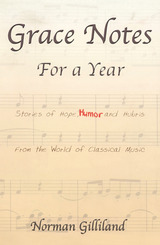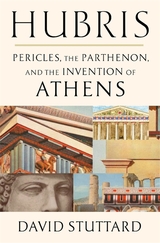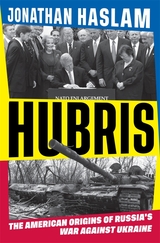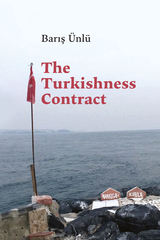
This irresistible collection of stories is perfect for anyone interested in a fresh perspective on what it means to be a human being who creates art. Grace Notes for a Year sheds light on the fragile and perilous process of inspiration, composition, and performance required to create classical music, whether the final product is a masterpiece or a mess. Each page of the book corresponds to a different day of the year and features a true story about a famous figure in musical history. These delightful anecdotes—inspirational, informative, and often hilarious—disprove the myth of the artist as untouchable. Instead, Norman Gilliland exposes in them human vulnerability we can all relate to. From Beethoven to Wagner, these artists suffered from poverty, spent lazy days in bed, had scandalous love affairs, and often failed in their creative endeavors as often as they succeeded.

A new perspective on ancient Athens at the height of its powers, reinterpreting the city’s supposed “Golden Age” as a period of ruinous culture wars.
The age of Pericles, in the fifth century BC, is often described as the Golden Age of Athens. The city witnessed a flowering of philosophy, art, and architecture—including an ambitious building program, with the Parthenon its centerpiece. But as David Stuttard shows in this vivid account, the seemingly triumphant city was in fact riven by conflict and contradiction. Though nominally a democracy, Athens led a tyrannical empire. And for Pericles and his circle, the Parthenon was less a holy place than a propaganda vehicle. Its sculptures carried the message that Athenians, beloved by the gods, were nearly divine in their own right—which to many Greeks smacked of hubris.
As long as things went well, Athenian democracy appeared to prosper. But just a year after the Parthenon was finished, Athens was at war with Sparta; a plague killed a third of the population, including Pericles; and earthquakes razed much of the city. In the wake of what seemed like divine retribution, popular outrage against those accused of undermining state religion was so strong that it took the execution of Socrates to lance the boil.
Hubris offers dramatic portraits of key figures like Pheidias, who sculpted the monumental statue of Athena yet fell prey to charges of impiety; Themistocles, who built the Athenian navy but died an exile in enemy lands; and Alcibiades, the psychopathic playboy whose mercurial ego hastened his city’s defeat. To understand the Parthenon and the Athens that built it, Stuttard makes clear, we must recognize the tensions among the city’s rivalrous families, generations, and social classes, whose visions of their place in the world ultimately proved incompatible.

A leading expert on US-Russian relations reveals how the United States and its European allies set the course for the war in Ukraine—and offers a sobering indictment of American foreign policy since the fall of the Soviet Union.
Russia’s full-scale invasion of Ukraine in February 2022 should not have taken the world by surprise. The attack escalated a war that began in 2014 with the Russian annexation of Crimea, but its origins are visible as far back as the aftermath of the Cold War, when newly independent Ukraine moved to the center of tense negotiations between Russia and the West. The United States was a leading player in this drama. In fact, Jonathan Haslam argues, it was decades of US foreign policy missteps and miscalculations, unchecked and often reinforced by European allies, that laid the groundwork for the current war.
Isolated, impoverished, and relegated to a second-order power on the world stage, Russia grew increasingly resentful of Western triumphalism in the wake of the Cold War. The United States further provoked Russian ire with a campaign to expand NATO into Eastern Europe—especially Ukraine, the most geopolitically important of the former Soviet republics. Determined to extend its global dominance, the United States repeatedly ignored signs that antagonizing Russia would bring consequences. Meanwhile, convinced that Ukraine was passing into the Western sphere of influence, Putin prepared to shift the European balance of power in Russia’s favor.
Timely and incisive, Hubris reveals the assumptions, equivocations, and grievances that have defined the West’s relations with Russia since the twilight of the Soviet Union—and ensured that collision was only a matter of time.
READERS
Browse our collection.
PUBLISHERS
See BiblioVault's publisher services.
STUDENT SERVICES
Files for college accessibility offices.
UChicago Accessibility Resources
home | accessibility | search | about | contact us
BiblioVault ® 2001 - 2025
The University of Chicago Press









